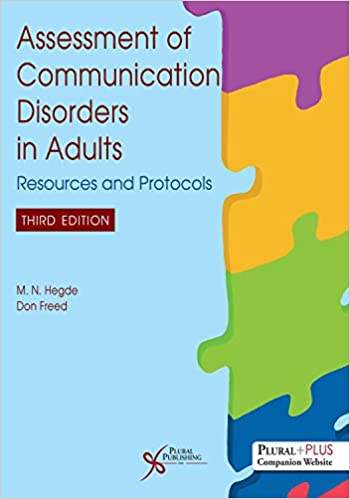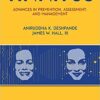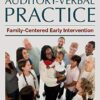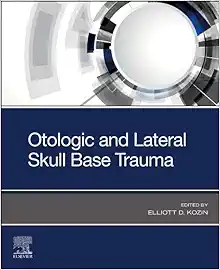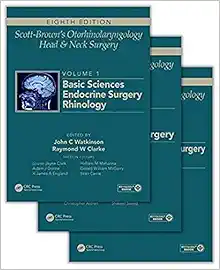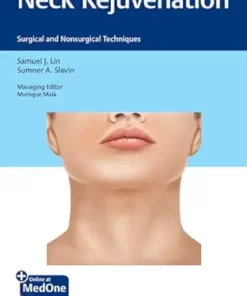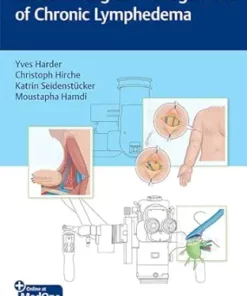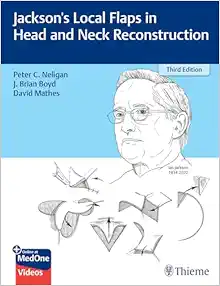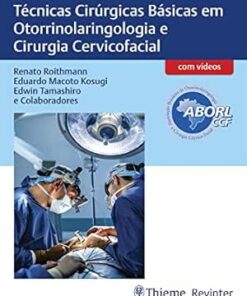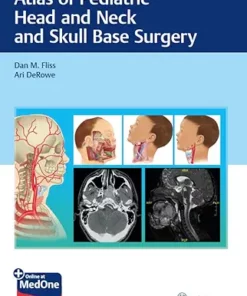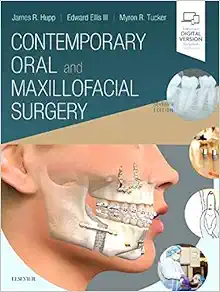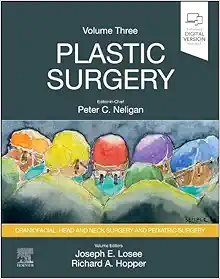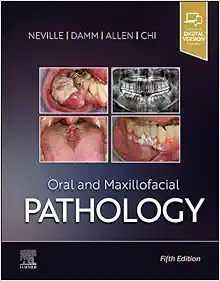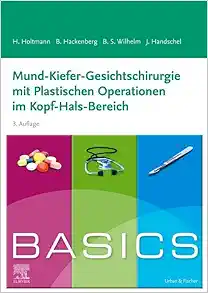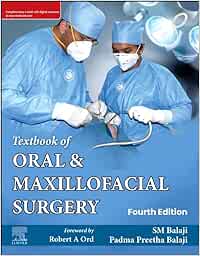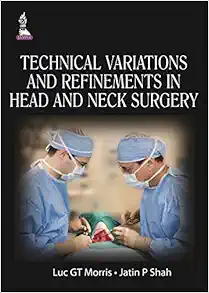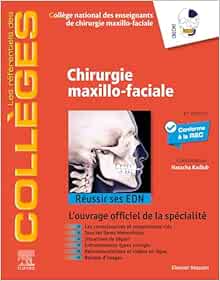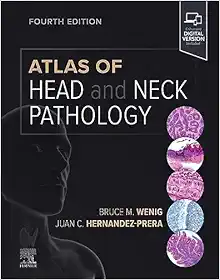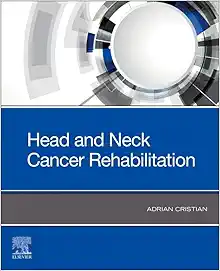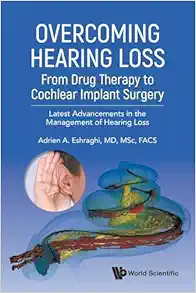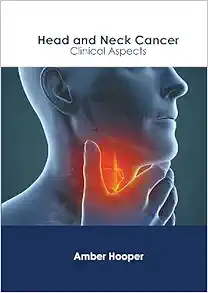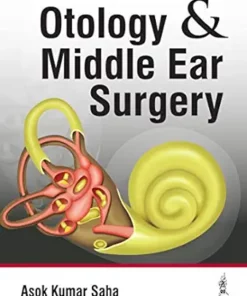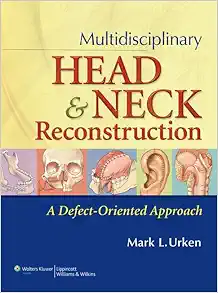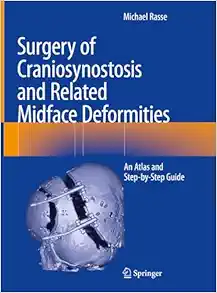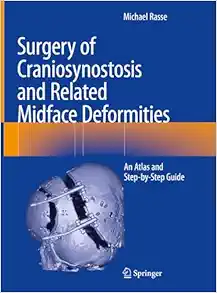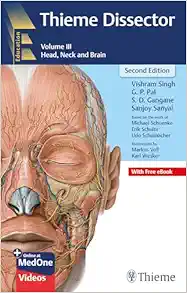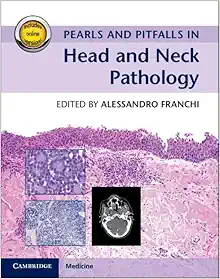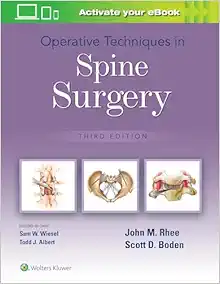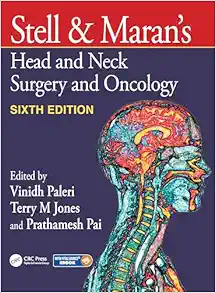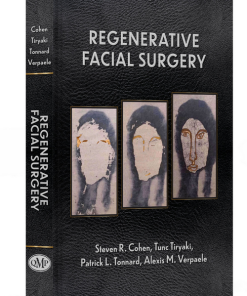Assessment of Communication Disorders in Adults: Resources and Protcols, 3rd Edition (Original PDF from Publisher)
$14
Publisher PDF
File Size = 13.20 MB
- Covers the full range of communication disorders in adults, from aphasia to voice disorders
- Gives a comprehensive outline of basic assessment procedures
- Provides a set of protocols that are necessary to assess any communication disorder in adults
- Addresses the multicultural issues in assessing communication disorders in adults and offers an integrated assessment approach that includes the most desirable features of the traditional and several alternative approaches
- Contains two chapters for each disorder: one on resources that offers scholarly and research background on the disorder and one on resources that describes practical procedures and protocols that save preparation time and effort for the clinician
- Includes access to a PluralPlus companion website containing the assessment protocols that can be viewed, customized, and printed by instructors, students, and clinicians
- Lecture slides for instructors in the PluralPlus companion website
- Expanded emphasis and specific guidelines on making a correct differential diagnosis
- Latest research on the characteristics of communication disorders in adults
- Review of recent trends on diagnostic assessment with critical recommendations for students and clinicians
- Updated epidemiological research on communication disorders
- Revised text to offer more succinct information on assessment tools and diagnostic criteria
- The latest standardized and informal assessment instruments
- Student-friendly, step-by-step instructions on how to conduct initial interviews and share final assessment results with patients in each protocol chapter
- Updated web links for key assessment materials mentioned in the text
- Publisher : Plural Publishing Inc; 3rd edition (1 Nov. 2020)
- Language : English
- Paperback : 500 pages
- ISBN-10 : 1635502632
- ISBN-13 : 978-1635502633
- ISBN-13 : 9781635502633
-
eText ISBN: 9781635501957
Assessment of Communication Disorders in Adults: Resources and Protocols, Third Edition offers a unique combination of scholarly information, invaluable resources, and time-saving protocols on assessment of communication disorders in adults.
Most resource books offer limited research and scholarly information, thus making them unsuitable as textbooks for academic courses on assessment and diagnosis. Similarly, most traditional textbooks do not include practical, easy-to-use, and time-saving resources and protocols that the practicing clinicians can readily use during assessment sessions. By combining the strengths of traditional textbooks with newer assessment resources and protocols, this one-of-a-kind book offers a single, comprehensive source that is suitable as a textbook and useful as a practical clinical resource.
This bestselling and trusted text:
New to the Third Edition:
Review
“Students, licensed speech-language pathologists, and university professors can benefit from this book. It covers all of the assessment areas for adults with communication disorders. The writing is clear, concise, and organized in such a way that a clinician could easily use any one of the protocols to assess the needs of their clients. The authors are well-versed in the area of adult communication deficits.
This book is divided into eight sections of more than 50 assessment protocols for adults with communication deficits. I appreciated the various assessment protocols. They are practical, functional, and easy to administer to clients with each type of disorder.
My favorite part of the book is the inclusion of dementia protocols. Quite often, dementia is left out of the mix because of the degenerative nature of the disease. Instead, the authors of this book included a complete section on dementia. They provided up-to-date research and protocols so not only will the clients benefit, but their loved ones will also receive the help they need along the dementia pathway.”
—Lorelei J Peirson, MA, Biola University, in Doody’s Reviews (February 2021)
M.N. Hegde, Don Freed
Product details
Related Products
HEAD AND NECK SURGERY & OTOLARYNGOLOGY
Otologic and Lateral Skull Base Trauma (True PDF from Publisher)
HEAD AND NECK SURGERY & OTOLARYNGOLOGY
HEAD AND NECK SURGERY & OTOLARYNGOLOGY
Neck Rejuvenation: Surgical and Nonsurgical Techniques (EPUB)
HEAD AND NECK SURGERY & OTOLARYNGOLOGY
HEAD AND NECK SURGERY & OTOLARYNGOLOGY
Jackson’s Local Flaps in Head and Neck Reconstruction (EPUB)
HEAD AND NECK SURGERY & OTOLARYNGOLOGY
HEAD AND NECK SURGERY & OTOLARYNGOLOGY
Atlas of Pediatric Head and Neck and Skull Base Surgery (EPUB)
HEAD AND NECK SURGERY & OTOLARYNGOLOGY
Contemporary Oral and Maxillofacial Surgery, 7th Edition (EPUB)
HEAD AND NECK SURGERY & OTOLARYNGOLOGY
HEAD AND NECK SURGERY & OTOLARYNGOLOGY
Oral and Maxillofacial Pathology, 5th Edition (True PDF from Publisher)
HEAD AND NECK SURGERY & OTOLARYNGOLOGY
HEAD AND NECK SURGERY & OTOLARYNGOLOGY
Textbook of Oral and Maxillofacial Surgery, 4th Edition (True PDF from Publisher)
HEAD AND NECK SURGERY & OTOLARYNGOLOGY
Technical Variations and Refinements in Head and Neck Surgery (Original PDF from Publisher)
HEAD AND NECK SURGERY & OTOLARYNGOLOGY
Chirurgie Maxillo-Faciale, 6th Edition (True PDF from Publisher)
HEAD AND NECK SURGERY & OTOLARYNGOLOGY
Atlas of Head and Neck Pathology, 4th Edition (True PDF from Publisher)
HEAD AND NECK SURGERY & OTOLARYNGOLOGY
Head and Neck Cancer Rehabilitation (True PDF from Publisher)
HEAD AND NECK SURGERY & OTOLARYNGOLOGY
HEAD AND NECK SURGERY & OTOLARYNGOLOGY
Head and Neck Cancer: Clinical Aspects (Original PDF from Publisher)
HEAD AND NECK SURGERY & OTOLARYNGOLOGY
HEAD AND NECK SURGERY & OTOLARYNGOLOGY
Multidisciplinary Head and Neck Reconstruction: A Defect-Oriented Approach (EPUB + Converted PDF)
HEAD AND NECK SURGERY & OTOLARYNGOLOGY
HEAD AND NECK SURGERY & OTOLARYNGOLOGY
HEAD AND NECK SURGERY & OTOLARYNGOLOGY
Thieme Dissector Volume 3: Head, Neck and Brain, 2nd Edition (Original PDF from Publisher)
HEAD AND NECK SURGERY & OTOLARYNGOLOGY
Pearls and Pitfalls in Head and Neck Pathology (Converted EPUB)
HEAD AND NECK SURGERY & OTOLARYNGOLOGY
2024 Practical Head & Neck Imaging: Mimics and Case-based Review – DocmedED (Videos)
HEAD AND NECK SURGERY & OTOLARYNGOLOGY
Operative Techniques in Spine Surgery, 3rd Edition (Original PDF from Publisher)
HEAD AND NECK SURGERY & OTOLARYNGOLOGY
2024 Multidisciplinary Head and Neck Cancers Symposium onDemand (Videos)
HEAD AND NECK SURGERY & OTOLARYNGOLOGY
Stell & Maran’s Head and Neck Surgery and Oncology, 6th edition (Original PDF from Publisher)
HEAD AND NECK SURGERY & OTOLARYNGOLOGY
HEAD AND NECK SURGERY & OTOLARYNGOLOGY
MAFAC Amsterdam 2023 – Cadaver Dissection Demonstrations & Lectures
HEAD AND NECK SURGERY & OTOLARYNGOLOGY
HEAD AND NECK SURGERY & OTOLARYNGOLOGY
Complex Head and Neck Microvascular Surgery: Comprehensive Management and Perioperative Care PDF
HEAD AND NECK SURGERY & OTOLARYNGOLOGY
Lateral Neck Swellings: Diagnostic and Therapeutic Challenges
HEAD AND NECK SURGERY & OTOLARYNGOLOGY
HEAD AND NECK SURGERY & OTOLARYNGOLOGY
Anatomy of Orofacial Structures: A Comprehensive Approach, 9th Edition
HEAD AND NECK SURGERY & OTOLARYNGOLOGY
HEAD AND NECK SURGERY & OTOLARYNGOLOGY
50 Landmark Papers every Thyroid and Parathyroid Surgeon Should Know
HEAD AND NECK SURGERY & OTOLARYNGOLOGY
Matrix Head and Neck Reconstruction: Scalable Reconstructive Approaches Organized by Defect Location
HEAD AND NECK SURGERY & OTOLARYNGOLOGY
HEAD AND NECK SURGERY & OTOLARYNGOLOGY
HEAD AND NECK SURGERY & OTOLARYNGOLOGY
Basic Guide to Oral and Maxillofacial Surgery (Basic Guide Dentistry Series)
HEAD AND NECK SURGERY & OTOLARYNGOLOGY
HEAD AND NECK SURGERY & OTOLARYNGOLOGY
HEAD AND NECK SURGERY & OTOLARYNGOLOGY
HEAD AND NECK SURGERY & OTOLARYNGOLOGY
HEAD AND NECK SURGERY & OTOLARYNGOLOGY
Otolaryngology: Current Concepts and Techniques in Head and Neck Surgery
HEAD AND NECK SURGERY & OTOLARYNGOLOGY
HEAD AND NECK SURGERY & OTOLARYNGOLOGY
Nanostructures for Oral Medicine (Micro and Nano Technologies)
HEAD AND NECK SURGERY & OTOLARYNGOLOGY
Kurzlehrbuch Hals-Nasen-Ohren-Heilkunde (UNI-MED Science), 4th Edition
HEAD AND NECK SURGERY & OTOLARYNGOLOGY
Postlaryngectomy voice rehabilitation with voice prostheses (UNI-MED Science)
HEAD AND NECK SURGERY & OTOLARYNGOLOGY
HEAD AND NECK SURGERY & OTOLARYNGOLOGY
HEAD AND NECK SURGERY & OTOLARYNGOLOGY
HEAD AND NECK SURGERY & OTOLARYNGOLOGY
HEAD AND NECK SURGERY & OTOLARYNGOLOGY
The Milan System for Reporting Salivary Gland Cytopathology, 2nd Edition
HEAD AND NECK SURGERY & OTOLARYNGOLOGY
HEAD AND NECK SURGERY & OTOLARYNGOLOGY
HEAD AND NECK SURGERY & OTOLARYNGOLOGY
Hair Cell Regeneration (Springer Handbook of Auditory Research, 75)
HEAD AND NECK SURGERY & OTOLARYNGOLOGY
HEAD AND NECK SURGERY & OTOLARYNGOLOGY
Soundscapes: Humans and Their Acoustic Environment (Springer Handbook of Auditory Research, 76)
HEAD AND NECK SURGERY & OTOLARYNGOLOGY
Simulation-Based Learning in Communication Sciences and Disorders: Moving from Theory to Practice
HEAD AND NECK SURGERY & OTOLARYNGOLOGY
Fundamentals of Anatomy and Physiology of Speech, Language, and Hearing
HEAD AND NECK SURGERY & OTOLARYNGOLOGY
HEAD AND NECK SURGERY & OTOLARYNGOLOGY
100 Complications of Otorhinolaryngology & Skull Base Surgery PDF & VIDEO
HEAD AND NECK SURGERY & OTOLARYNGOLOGY
The Art of Body Contouring: After Massive Weight Loss, 2nd edition Original PDF and Video
HEAD AND NECK SURGERY & OTOLARYNGOLOGY
HEAD AND NECK SURGERY & OTOLARYNGOLOGY
2023 Osteocom Hard and Soft Tissue Augmentation 2.0 – Luca De Stavola
HEAD AND NECK SURGERY & OTOLARYNGOLOGY
Sinus Grafting for Implant Reconstruction (Pikos Online MasterClass Series) – Michael A. Pikos
HEAD AND NECK SURGERY & OTOLARYNGOLOGY
Osteocom Full Tilted Implants Prosthetic and Surgical Protocols 2023
HEAD AND NECK SURGERY & OTOLARYNGOLOGY
HEAD AND NECK SURGERY & OTOLARYNGOLOGY
Optimizing Orthognathic Surgery: Diagnosis, Planning, Procedures (Epub & Converted to PDF)
HEAD AND NECK SURGERY & OTOLARYNGOLOGY
HEAD AND NECK SURGERY & OTOLARYNGOLOGY
2023 Classic Lectures in Head & Neck Imaging – A CME Teaching Activity
HEAD AND NECK SURGERY & OTOLARYNGOLOGY
Structure & Preservation Rhinoplasty Conference 2021 Istanbul
HEAD AND NECK SURGERY & OTOLARYNGOLOGY
HEAD AND NECK SURGERY & OTOLARYNGOLOGY
HEAD AND NECK SURGERY & OTOLARYNGOLOGY
HEAD AND NECK SURGERY & OTOLARYNGOLOGY
HEAD AND NECK SURGERY & OTOLARYNGOLOGY
Working with Voice Disorders, 3e (Original PDF from Publisher)
HEAD AND NECK SURGERY & OTOLARYNGOLOGY
Principles and Practices in Augmentative and Alternative Communication (Original PDF from Publisher)
HEAD AND NECK SURGERY & OTOLARYNGOLOGY
HEAD AND NECK SURGERY & OTOLARYNGOLOGY
HEAD AND NECK SURGERY & OTOLARYNGOLOGY
Jaypee’s Video Atlas of Operative Otorhinolaryngology and Head & Neck Surgery (Videos Only)
HEAD AND NECK SURGERY & OTOLARYNGOLOGY
Ear, Nose and Throat Simplified, 3rd edition (Original PDF from Publisher)
HEAD AND NECK SURGERY & OTOLARYNGOLOGY
ORL: Réussir son DFASM – Connaissances clés, 5th edition (Original PDF from Publisher)
HEAD AND NECK SURGERY & OTOLARYNGOLOGY
HEAD AND NECK SURGERY & OTOLARYNGOLOGY
Invasive Skull Base Mucormycosis New Perspectives (Original PDF from Publisher+Videos)
HEAD AND NECK SURGERY & OTOLARYNGOLOGY
Atlas of Facial Nerve Surgeries and Reanimation Procedures Original PDF
HEAD AND NECK SURGERY & OTOLARYNGOLOGY
Non-Surgical Rhinoplasty (The PRIME Series) (Original PDF from Publisher)
HEAD AND NECK SURGERY & OTOLARYNGOLOGY
Rinologia: Master Techniques In Otolaryngology – Head And Neck Surgery (Original PDF from Publisher)
HEAD AND NECK SURGERY & OTOLARYNGOLOGY
Secrets: Otorrinolaringologia, 4th Edition (Original PDF from Publisher)
HEAD AND NECK SURGERY & OTOLARYNGOLOGY
Otorrinolaringologia: Manual Prático em Cores (Original PDF from Publisher)
HEAD AND NECK SURGERY & OTOLARYNGOLOGY
HEAD AND NECK SURGERY & OTOLARYNGOLOGY
Current Opinion in Otolaryngology & Head and Neck Surgery 2022 Full Archives (True PDF)
HEAD AND NECK SURGERY & OTOLARYNGOLOGY
HEAD AND NECK SURGERY & OTOLARYNGOLOGY
Pediatric Otolaryngology: Practical Clinical Management,1st edition (EPUB)
HEAD AND NECK SURGERY & OTOLARYNGOLOGY
Color Atlas of Endo-Otoscopy: Examination-Diagnosis-Treatment, 1st edition (EPUB)
HEAD AND NECK SURGERY & OTOLARYNGOLOGY
HEAD AND NECK SURGERY & OTOLARYNGOLOGY
Manual of Eye, Ear, Nose, and Throat Emergencies (Original PDF from Publisher)

